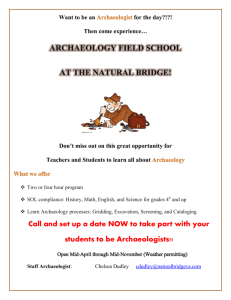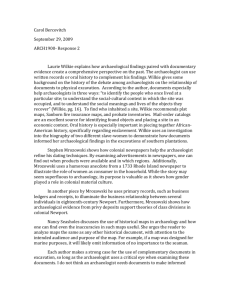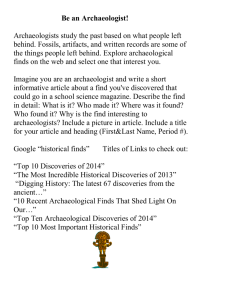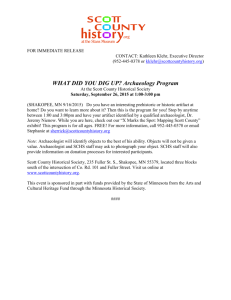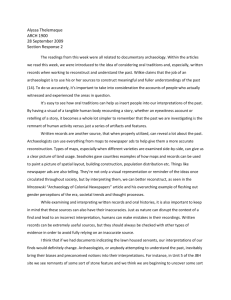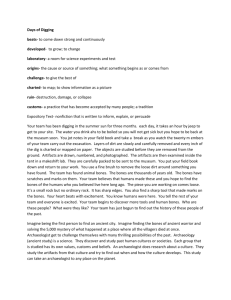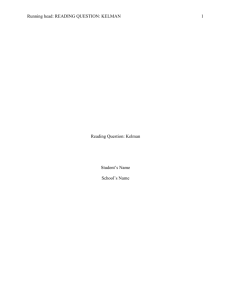Archaeology question A
advertisement
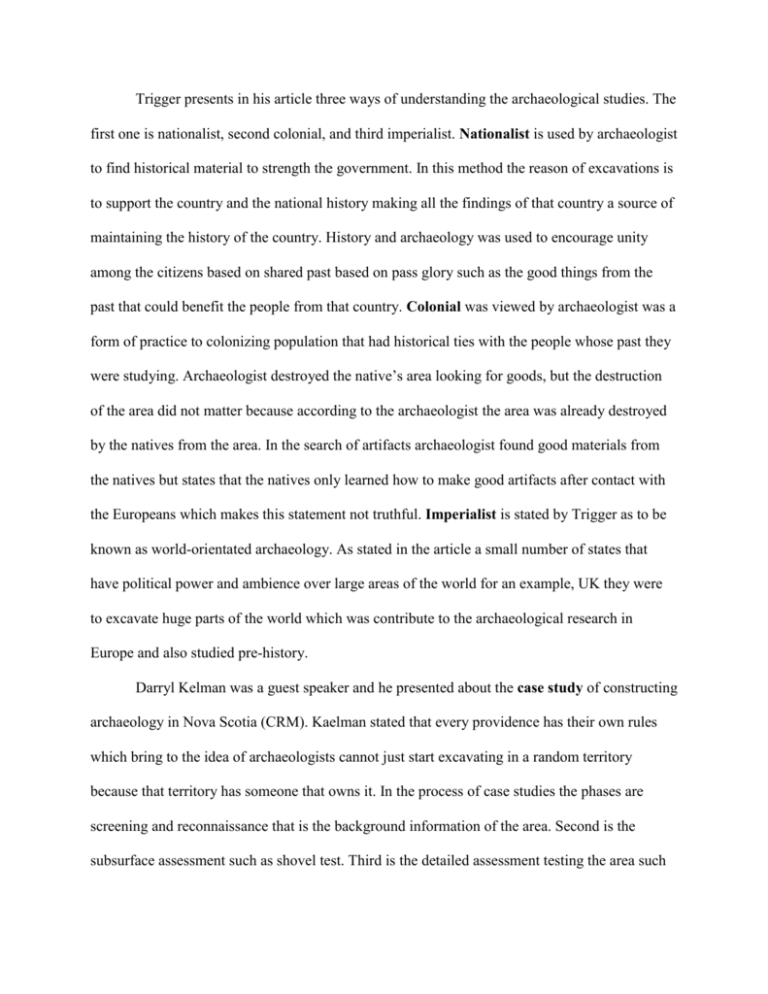
Trigger presents in his article three ways of understanding the archaeological studies. The first one is nationalist, second colonial, and third imperialist. Nationalist is used by archaeologist to find historical material to strength the government. In this method the reason of excavations is to support the country and the national history making all the findings of that country a source of maintaining the history of the country. History and archaeology was used to encourage unity among the citizens based on shared past based on pass glory such as the good things from the past that could benefit the people from that country. Colonial was viewed by archaeologist was a form of practice to colonizing population that had historical ties with the people whose past they were studying. Archaeologist destroyed the native’s area looking for goods, but the destruction of the area did not matter because according to the archaeologist the area was already destroyed by the natives from the area. In the search of artifacts archaeologist found good materials from the natives but states that the natives only learned how to make good artifacts after contact with the Europeans which makes this statement not truthful. Imperialist is stated by Trigger as to be known as world-orientated archaeology. As stated in the article a small number of states that have political power and ambience over large areas of the world for an example, UK they were to excavate huge parts of the world which was contribute to the archaeological research in Europe and also studied pre-history. Darryl Kelman was a guest speaker and he presented about the case study of constructing archaeology in Nova Scotia (CRM). Kaelman stated that every providence has their own rules which bring to the idea of archaeologists cannot just start excavating in a random territory because that territory has someone that owns it. In the process of case studies the phases are screening and reconnaissance that is the background information of the area. Second is the subsurface assessment such as shovel test. Third is the detailed assessment testing the area such as the measurements of squares and trenches. The third one is mitigation which is the beginning of excavation. The example provided by Kelman was the case study of Sandy Reservoir Main Site. In the work all phases were done, but this does not usually happen because different groups do different states. Kelman also said that every finding must be reported to authority and must be published as well. The way how this case study presented by Kelman supports Trigger’s statements is that as Kelman says that every providences has their own rules. In the article by Trigger he argues about Nationalist and says that Nationalist is used to help the government maintain the national history this brings the idea of each country has its rules. Also the work by Kelman relates to the article by Trigger because as the articles says that excavation was a part of contributing to researches which is part of the step of imperialist in the work by Kelman the finding must be report to authorities and published. The process that needs to be taken by archaeologist is related to political and social agenda because as mentioned in this paper every territory has an owner and to be able to start an excavation the archaeologist must have the permission to start the work process. As Trigger’ states about the three steps of Nationalist where archaeologist find artifacts to strength the country history. Colonial is where high authorities have the ability to not let the excavation start. Imperialist is where finds must be report to support the archaeological knowledge. The three archaeological schools is culture history, processual, and post-processual. Culture history is focused on time and space, the type of artifact people were using and changed explained by migration and diffusion. Processual studies isolated process instead of looking at the whole picture, also focused on environment, economy and social relations. The reason of agriculture revolution was that if you need food there are two ways to deal with it you can kill people or you grow more food and after agriculture revolution population increased drastically. The last archaeological school is Post-processual where humans are not robots people still have the ability to make decisions. Napoleon conquered much Europe, did what he wanted to do even crowed himself, more specific, less general, societies have so much of historical backgroup generalization do no exists.
